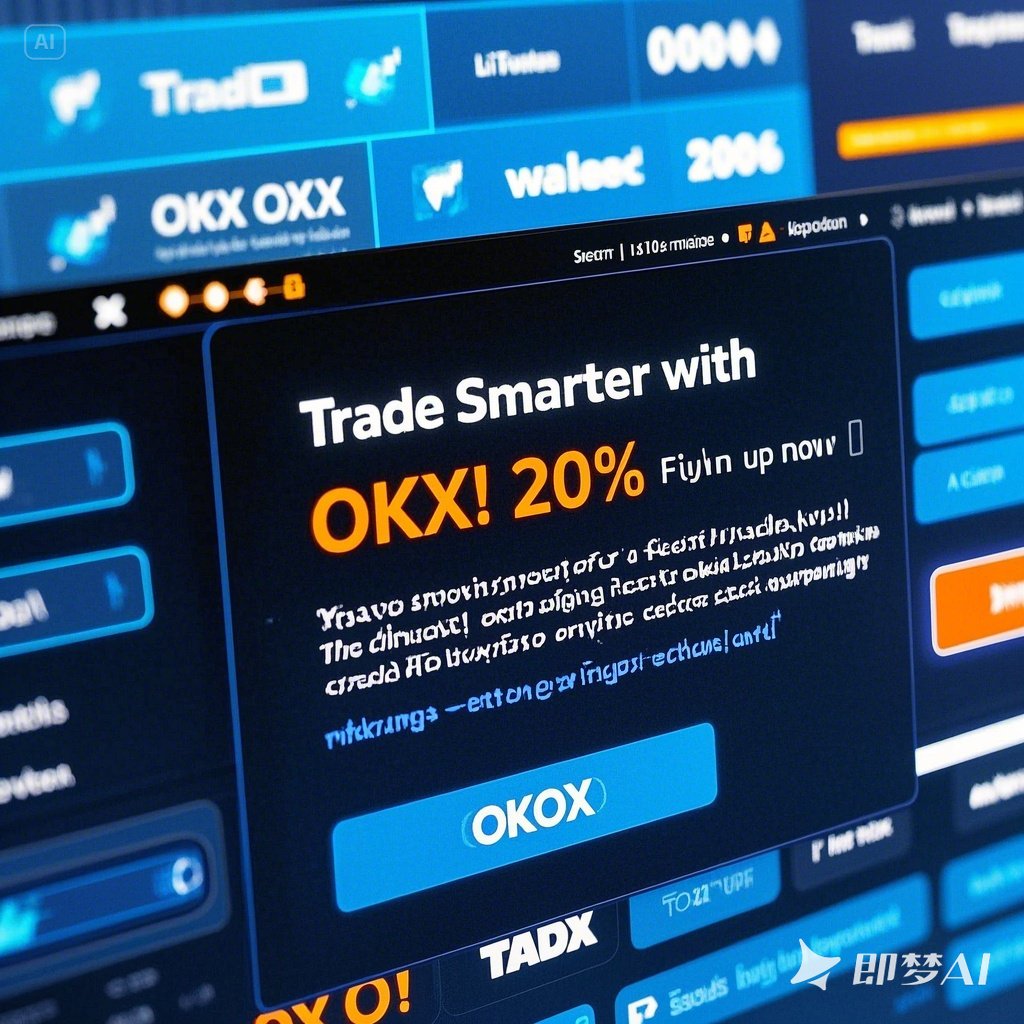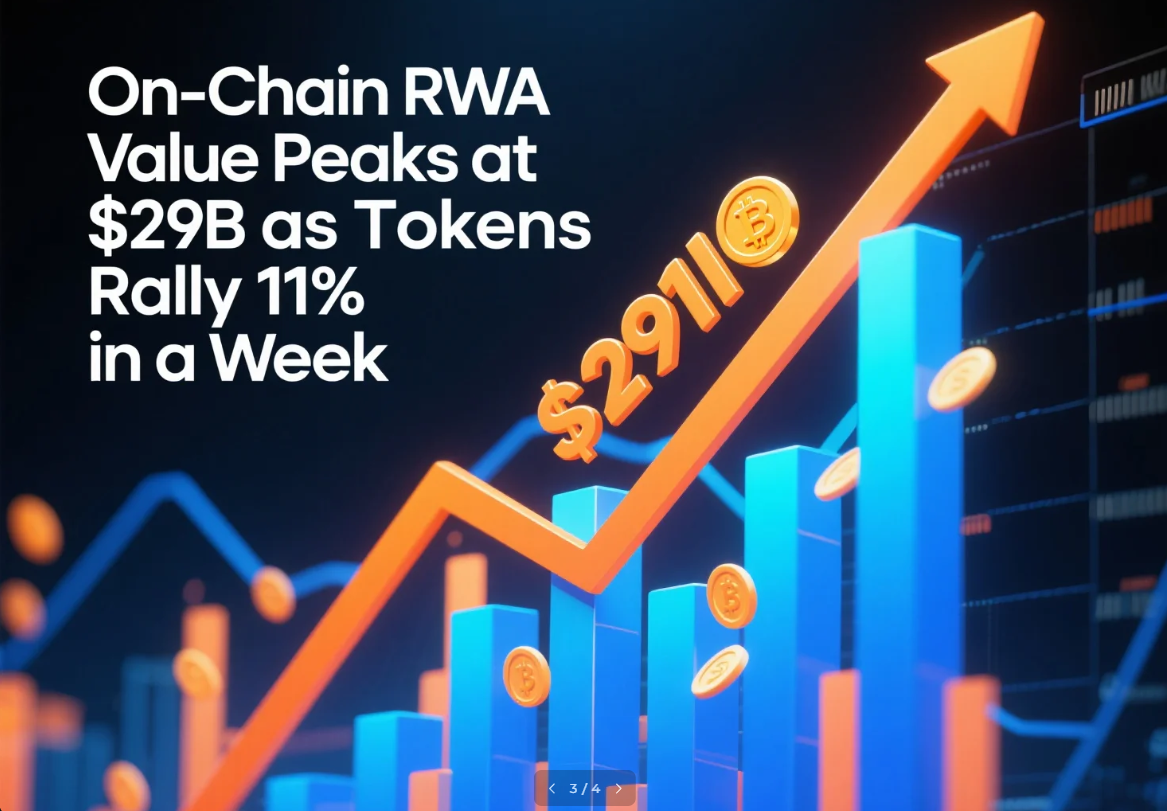Best MetaMask Competitors: Find the Perfect Crypto Wallet Alternative Today
Don’t just sign up — trade smarter and save 20% with referral codes: Binance WZ9KD49N / OKX 26021839
What is MetaMask? – A brief overview of MetaMask and its role in blockchain interactions.
What is MetaMask?
What is MetaMask?
MetaMask is a popular browser extension and mobile application that serves as a gateway to the decentralized web. It acts as a bridge between users and the Ethereum blockchain ecosystem, allowing individuals to interact with decentralized applications (dApps) directly from their web browsers or mobile devices. As a wallet, MetaMask enables users to store, send, and receive digital assets such as cryptocurrencies and tokens.
The Role of MetaMask in Blockchain Interactions
One of the primary roles of MetaMask is to simplify blockchain interactions for both beginners and experienced users. By integrating with the Ethereum network, MetaMask provides a user-friendly interface that abstracts away much of the technical complexity involved in blockchain transactions. Users can easily connect to dApps without needing to manually configure their nodes or manage private keys.
Key functionalities of MetaMask include:
Wallet Management: Users can securely store Ether (ETH) and other ERC-20 tokens within their MetaMask wallets. Transaction Signing: MetaMask allows users to sign and broadcast transactions on the Ethereum blockchain with just a few clicks. dApp Integration: The wallet seamlessly connects users to thousands of decentralized applications built on Ethereum, enabling them to participate in activities like staking, lending, gaming, and more. Custom Network Support: MetaMask supports multiple networks beyond Ethereum, including testnets like Rinkeby and Goerli, making it an ideal tool for developers and testers.
By providing this functionality, MetaMask empowers individuals to take control of their digital assets and explore the vast possibilities of blockchain technology. Whether you’re a casual crypto enthusiast or a seasoned developer, MetaMask plays a crucial role in democratizing access to the decentralized future.
Why Explore Alternatives? – Reasons to consider other wallet options beyond MetaMask.
Why Explore Alternatives?
Why Explore Alternatives?
Reasons to Consider Other Wallet Options Beyond MetaMask
In the rapidly evolving world of blockchain and cryptocurrency, choosing the right wallet is crucial for securing your digital assets and ensuring a seamless user experience. While MetaMask has long been a popular choice among crypto enthusiasts, it’s essential to explore alternatives to find the best fit for your needs. Here are some compelling reasons why you should consider other wallet options beyond MetaMask.
1. Enhanced Security Features
MetaMask is widely trusted for its security, but other wallets may offer advanced features tailored to specific user requirements. For instance, hardware wallets like Ledger Nano X or Trezor Model T provide offline (cold storage) solutions that eliminate the risk of online hacking, making them ideal for long-term asset storage. If security is your top priority, exploring these alternatives can give you peace of mind.
2. Multi-Currency Support
While MetaMask primarily focuses on Ethereum-based assets, many alternative wallets support multiple blockchains, such as Bitcoin, Solana, Binance Smart Chain, and more. By using a multi-currency wallet, you can manage all your digital assets from a single interface, saving time and reducing the hassle of switching between different platforms. This flexibility is particularly valuable if you hold a diverse portfolio of cryptocurrencies.
3. User Experience and Interface Design
The user experience (UX) varies significantly across wallets. Some users might find MetaMask’s interface overwhelming or difficult to navigate, especially for beginners. Wallets like Rainbow or Trust Wallet offer sleek designs and intuitive interfaces that make managing your crypto simpler and more enjoyable. Exploring options with better UX can enhance your overall crypto journey.
4. Lower Fees and Transaction Costs
Transaction fees can vary greatly depending on the wallet and blockchain network you use. Some wallets negotiate lower gas fees or offer fee-free transactions on certain networks. By exploring alternatives, you could save money on transaction costs, which is especially important during periods of high network congestion or volatility.
5. Privacy and Anonymity
Privacy is a growing concern in the crypto space, and some wallets prioritize anonymity more than others. For example, Wasabi Wallet is designed specifically for privacy-focused users who want to ensure their transactions remain untraceable. If privacy is a priority for you, exploring wallets that cater to this need can be beneficial.
6. Integration with DApps and Ecosystems
Although MetaMask dominates the decentralized application (DApp) ecosystem, other wallets are increasingly integrating with various blockchain platforms. For instance, Phantom supports Solana-based apps, while WalletConnect allows seamless interaction with a wide range of decentralized services. If you’re invested in a particular blockchain or project, finding a wallet that aligns with its ecosystem can improve functionality and usability.
7. Custodial vs. Non-Custodial Choices
Another important consideration is whether you prefer a custodial or non-custodial wallet. MetaMask is non-custodial, meaning you retain full control over your private keys. However, custodial wallets like Coinbase Wallet offer convenience but come with the trade-off of reduced control. Depending on your comfort level with self-managing your funds, exploring both types of wallets can help you make an informed decision.
8. Mobile-First Solutions
With the increasing popularity of mobile devices, many wallets now focus on providing robust mobile experiences. Wallets like Argent or Pillar are designed specifically for mobile users, offering features like biometric authentication and push notifications. If you frequently access your crypto on-the-go, a mobile-first wallet could be a better option than MetaMask.
Conclusion
While MetaMask remains a staple in the crypto community, it’s not the only solution available. Exploring alternatives can help you discover wallets that better suit your unique needs in terms of security, functionality, cost, and user experience. Whether you’re a seasoned trader or a newcomer to the world of blockchain, taking the time to evaluate other options ensures that you find the perfect tool to protect and grow your digital assets.
WalletConnect – Understanding how WalletConnect enables interaction with decentralized apps.
Understanding WalletConnect h1, h2 { color: #2c3e50; } p { margin-bottom: 15px; } .container { max-width: 800px; margin: auto; background: #fff; padding: 20px; border-radius: 8px; box-shadow: 0 2px 5px rgba(0, 0, 0, 0.1); } a { color: #1abc9c; text-decoration: none; } a:hover { text-decoration: underline; }
Understanding WalletConnect
WalletConnect is a protocol that allows users to securely and easily connect their cryptocurrency wallets to decentralized applications (dApps). It serves as a bridge between blockchain-based dApps and user wallets, enabling seamless interaction without compromising security or privacy.
How Does WalletConnect Work?
At its core, WalletConnect uses a QR code-based pairing system to establish a secure connection between a user’s wallet and a dApp. Here’s how it works:
QR Code Generation: When a user opens a dApp that supports WalletConnect, they will see a QR code displayed on the screen. This QR code contains a unique session key. Wallet Connection: The user then scans this QR code using their WalletConnect-enabled mobile wallet app (such as MetaMask Mobile, Trust Wallet, or others). Secure Pairing: Once scanned, the wallet and dApp establish a secure encrypted session over the internet. This ensures that all communication remains private and tamper-proof. Transaction Signing: With the connection established, the dApp can request actions such as sending tokens, staking assets, or interacting with smart contracts. These requests are sent to the user’s wallet for approval. User Approval: The user reviews the transaction details on their wallet app and approves or denies the action. If approved, the transaction is signed locally on the device and broadcasted to the blockchain network.
Key Benefits of Using WalletConnect
Seamless Integration: WalletConnect simplifies the process of connecting a wallet to a dApp, making it accessible even for non-technical users. Decentralized Security: Transactions are signed locally on the user’s device, ensuring no third party has access to sensitive information like private keys. Platform Independence: WalletConnect works across multiple platforms, including iOS, Android, and desktop browsers, providing flexibility for users. Open Source Protocol: As an open-source solution, WalletConnect fosters innovation within the blockchain ecosystem while maintaining transparency.
Real-World Applications
WalletConnect is widely adopted by various types of dApps, including decentralized finance (DeFi) platforms, NFT marketplaces, gaming ecosystems, and more. For instance:
A DeFi platform may use WalletConnect to allow users to swap tokens directly from their mobile wallets. An NFT marketplace could integrate WalletConnect to enable users to mint, buy, or sell digital assets seamlessly. Blockchain games might leverage WalletConnect to facilitate in-game purchases or rewards distribution.
Conclusion
WalletConnect represents a significant advancement in bridging the gap between blockchain technology and mainstream adoption. By offering a simple yet robust way to interact with decentralized apps, it empowers users to take full control of their digital assets while ensuring high levels of security. Whether you’re a seasoned crypto enthusiast or just starting your journey into Web3, understanding WalletConnect is essential for navigating the ever-evolving world of decentralized applications.
For further exploration, consider visiting the official WalletConnect website to learn more about its features and integrations.
Trust Wallet – Features and benefits of Trust Wallet as a popular alternative.
Trust Wallet – Features and Benefits h1 { color: #2c3e50; } h2 { color: #34495e; } p { margin-bottom: 15px; } ul { list-style-type: disc; margin-left: 20px; } .container { max-width: 800px; margin: auto; background: white; padding: 20px; border-radius: 8px; box-shadow: 0 2px 5px rgba(0,0,0,0.1); }
Trust Wallet – Features and Benefits of This Popular Alternative
Trust Wallet has rapidly become one of the most popular cryptocurrency wallets available today. Known for its simplicity, security, and versatility, Trust Wallet offers users an intuitive platform to manage their digital assets effectively. Whether you’re a seasoned crypto enthusiast or just starting out, this wallet provides a compelling set of features that cater to diverse needs.
Key Features of Trust Wallet
Multi-Coin Support: One of the standout features of Trust Wallet is its ability to support over 20,000 cryptocurrencies and tokens. This makes it an ideal choice for users who want to hold multiple types of digital assets without needing separate wallets. Secure Storage: Trust Wallet uses advanced encryption techniques to protect your private keys, ensuring that your funds remain secure from unauthorized access. Additionally, the option to enable biometric authentication (such as fingerprint scanning) adds an extra layer of protection. Decentralized Exchange (DEX): Integrated directly into the wallet, Trust Wallet allows users to trade cryptocurrencies seamlessly via decentralized exchanges like Uniswap. This eliminates the need for third-party platforms and ensures greater control over your trades. Staking and Yield Farming: Trust Wallet supports staking for various Proof-of-Stake (PoS) coins, enabling users to earn passive income by participating in network validation. Similarly, yield farming opportunities allow users to maximize returns on their holdings. User-Friendly Interface: Designed with simplicity in mind, Trust Wallet’s interface is easy to navigate even for beginners. The app also supports customizable settings, allowing users to tailor their experience according to personal preferences.
Benefits of Using Trust Wallet
There are several compelling reasons why Trust Wallet stands out as a preferred alternative among crypto enthusiasts:
Open Source Transparency: As an open-source project, Trust Wallet encourages community contributions and fosters transparency. This openness helps build trust among users who value accountability and innovation. Mobile Accessibility: Available on both iOS and Android devices, Trust Wallet ensures portability and convenience for users who prefer managing their portfolios on-the-go. Its seamless integration with mobile operating systems enhances usability. Community-Driven Development: Trust Wallet benefits from active community engagement, which drives continuous improvements and updates. Regular feature enhancements reflect the evolving demands of the crypto ecosystem. No Centralized Servers: Unlike many centralized exchanges, Trust Wallet does not store user funds or private keys. Instead, all transactions occur on-chain, giving users full custody of their assets—a critical aspect of blockchain philosophy. Low Fees: By leveraging decentralized infrastructure, Trust Wallet often offers lower transaction fees compared to traditional financial institutions or centralized exchanges. Users can save money while enjoying faster settlement times.
Conclusion
Trust Wallet represents more than just a cryptocurrency wallet; it embodies a vision of decentralized finance (DeFi) that empowers individuals to take charge of their financial future. With robust features, unmatched security, and a commitment to user empowerment, Trust Wallet continues to solidify its position as a go-to solution for managing digital assets. For anyone looking to explore the world of cryptocurrencies, Trust Wallet is undoubtedly worth considering as part of your toolkit.
Coinbase Wallet – How Coinbase Wallet simplifies crypto management and DApp access.
How Coinbase Wallet Simplifies Crypto Management and DApp Access h1 { color: #2c3e50; } p { margin-bottom: 15px; } ul { list-style-type: disc; padding-left: 20px; } .container { max-width: 800px; margin: auto; background: #fff; padding: 20px; border-radius: 8px; box-shadow: 0 2px 5px rgba(0,0,0,0.1); } .highlight { background-color: #ffe873; padding: 5px; border-radius: 4px; }
How Coinbase Wallet Simplifies Crypto Management and DApp Access
Coinbase Wallet is one of the most popular cryptocurrency wallets available today, designed to make managing digital assets and accessing decentralized applications (DApps) as seamless as possible. Whether you’re a seasoned crypto enthusiast or new to the world of blockchain technology, Coinbase Wallet offers a user-friendly interface that caters to both beginners and advanced users alike.
Streamlined Crypto Management
One of the standout features of Coinbase Wallet is its ability to simplify crypto management. With Coinbase Wallet, users can store, send, receive, and track multiple cryptocurrencies all within a single app. The wallet supports a wide range of popular coins such as Bitcoin (BTC), Ethereum (ETH), Litecoin (LTC), and many others, allowing you to manage your entire portfolio in one place.
Secure Storage: Coinbase Wallet uses advanced security measures, including private key encryption, to keep your funds safe from unauthorized access. User-Friendly Interface: The intuitive design ensures that even those unfamiliar with blockchain technology can easily navigate their accounts and perform transactions. Real-Time Updates: Stay informed about market trends by viewing real-time price updates for your holdings directly within the app.
Additionally, Coinbase Wallet provides tools like gas fee estimations, which help ensure efficient transaction processing while minimizing costs. This level of detail ensures that users have full control over their financial activities without needing extensive technical knowledge.
Effortless DApp Integration
Another significant advantage of Coinbase Wallet is its integration with decentralized applications (DApps). By connecting your wallet to platforms built on blockchain networks like Ethereum, you gain access to innovative services such as decentralized finance (DeFi) protocols, NFT marketplaces, gaming ecosystems, and more.
To connect to DApps, simply open the Coinbase Wallet app and log into MetaMask—a widely adopted browser extension used across various decentralized web services. Once connected, you can explore thousands of decentralized apps tailored specifically for blockchain enthusiasts.
Seamless Connectivity: Coinbase Wallet works seamlessly with MetaMask, enabling frictionless interaction between traditional finance systems and emerging decentralized ones. Discover New Opportunities: From yield farming opportunities in DeFi to purchasing unique digital art pieces via NFTs, Coinbase Wallet opens up endless possibilities for exploration. Enhanced Security: Unlike centralized exchanges where personal information may be required during registration processes, using Coinbase Wallet maintains privacy since no sensitive data needs sharing when engaging with DApps.
In conclusion, whether you’re looking to streamline your crypto management routine or dive deeper into the exciting realm of decentralized applications, Coinbase Wallet proves itself invaluable time after time. Its combination of simplicity, functionality, and robustness makes it an ideal choice for anyone seeking reliable solutions in managing their digital assets effectively.
Atomic Wallet – Exploring Atomic Wallet’s multi-currency support and user-friendly interface.
Atomic Wallet: Multi-Currency Support & User-Friendly Interface
Atomic Wallet: A Comprehensive Crypto Solution
Atomic Wallet is one of the most versatile cryptocurrency wallets available today, offering users a seamless experience with its robust multi-currency support and intuitive user interface. Whether you’re a seasoned crypto enthusiast or a newcomer to the world of digital assets, Atomic Wallet provides tools that cater to your needs.
Multi-Currency Support: A One-Stop Shop for Your Coins
One of the standout features of Atomic Wallet is its extensive multi-currency support. It allows users to manage over 500 cryptocurrencies directly from a single platform. This includes major cryptocurrencies like Bitcoin (BTC), Ethereum (ETH), and Litecoin (LTC), as well as lesser-known altcoins such as Monero (XMR) and Cardano (ADA). The ability to store multiple coins in one place eliminates the need for users to juggle multiple wallets, simplifying the management of their digital assets.
What sets Atomic Wallet apart is its built-in exchange feature, which enables users to swap between supported cryptocurrencies without leaving the app. This decentralized exchange functionality ensures that users can trade securely and efficiently, making it an ideal choice for those looking to diversify their holdings or take advantage of market fluctuations.
User-Friendly Interface: Designed for Simplicity
Atomic Wallet boasts a clean, modern design that prioritizes ease of use. The interface is straightforward, allowing even beginners to navigate through its features effortlessly. Upon opening the wallet, users are greeted by a dashboard that displays their portfolio summary, recent transactions, and price updates for their selected cryptocurrencies.
The wallet’s intuitive layout ensures that tasks such as sending, receiving, and exchanging funds are completed with minimal effort. Users can easily generate new addresses for each cryptocurrency they hold, ensuring secure transactions every time. Additionally, Atomic Wallet supports hardware wallets like Ledger and Trezor, providing an extra layer of security for users who prefer cold storage solutions.
Security First
Security is paramount when dealing with digital currencies, and Atomic Wallet doesn’t compromise on this front. All private keys are stored locally on the user’s device, ensuring that no sensitive information is ever transmitted to third parties. The wallet also employs advanced encryption protocols to protect user data, giving peace of mind to those concerned about cyber threats.
Mobile Compatibility
For those on the go, Atomic Wallet offers mobile applications for both iOS and Android devices. These apps mirror the desktop version’s functionality, allowing users to manage their portfolios and conduct transactions from anywhere. The mobile app’s responsive design ensures a smooth experience across different screen sizes, making it convenient for users to stay connected to their crypto assets at all times.
Conclusion
Atomic Wallet stands out as a premier solution for anyone seeking a reliable, feature-rich cryptocurrency wallet. Its multi-currency support, combined with its user-friendly interface, makes managing digital assets more accessible than ever before. Whether you’re holding onto Bitcoin, exploring altcoins, or simply looking for a secure way to exchange cryptocurrencies, Atomic Wallet delivers a comprehensive and hassle-free experience.
Brave Browser Wallet – Integrating wallet functionality within a privacy-focused browser.
Brave Browser Wallet – Integrating Wallet Functionality h1 { color: #2c3e50; } p { margin-bottom: 15px; } .container { max-width: 800px; margin: auto; background: #fff; padding: 20px; box-shadow: 0 2px 5px rgba(0,0,0,0.1); } strong { color: #e74c3c; }
Brave Browser Wallet – Integrating Wallet Functionality within a Privacy-Focused Browser
The Brave Browser is not just another web browser; it’s a revolutionary platform designed to prioritize user privacy and security while offering innovative features that redefine how we interact with the internet. One of its most groundbreaking innovations is the integration of a built-in wallet functionality, which allows users to manage their digital assets directly from the browser.
What Makes Brave Browser Unique?
At its core, Brave Browser was created to combat intrusive ads, data tracking, and privacy breaches that plague traditional browsers. By blocking third-party trackers and offering an ad-free browsing experience, Brave ensures that your online activities remain private and secure. This commitment to privacy sets it apart from competitors like Chrome or Firefox, making it a favorite among privacy-conscious users.
Introducing the Brave Wallet
The Brave Wallet is a seamless integration that empowers users to store, send, and receive cryptocurrencies without leaving the browser. Unlike standalone wallets that require separate apps or hardware devices, the Brave Wallet is fully embedded within the browser interface, providing convenience and accessibility. Users can easily access decentralized finance (DeFi) applications, trade tokens, and explore blockchain-based ecosystems—all from one centralized location.
Key Features of the Brave Wallet
Multi-Coin Support: The Brave Wallet supports multiple cryptocurrencies, including Bitcoin (BTC), Ethereum (ETH), and ERC-20 tokens, allowing users to manage diverse portfolios within a single interface. Security First: With advanced security measures such as hardware wallet integration and seed phrase protection, the Brave Wallet ensures that your funds are always safe. User-Friendly Interface: Designed for both beginners and experienced users, the Brave Wallet offers an intuitive design that simplifies cryptocurrency management. Integration with Web3 Ecosystems: The wallet enables interaction with decentralized applications (dApps) and smart contracts, bridging the gap between mainstream browsers and blockchain technology.
Why Is This Important?
The integration of wallet functionality into a privacy-focused browser like Brave represents a significant shift in how people engage with blockchain technology. For many, managing cryptocurrencies has historically required navigating complex tools and services. The Brave Wallet eliminates these barriers by placing this capability directly at users’ fingertips. Moreover, since Brave already prioritizes privacy, incorporating wallet functionality aligns perfectly with its mission to give control back to the individual.
By combining a secure, private browsing environment with seamless cryptocurrency management, Brave is paving the way for a future where digital sovereignty becomes the norm rather than the exception. Whether you’re a seasoned crypto enthusiast or someone looking to dip your toes into blockchain, the Brave Browser Wallet makes it easier than ever to take charge of your financial future.
Conclusion
The Brave Browser Wallet is more than just a feature—it’s a statement about what the internet can be when privacy and innovation come together. As blockchain technology continues to grow, solutions like Brave provide a bridge between mainstream adoption and decentralized systems. If you value your privacy and want to explore the possibilities of Web3, the Brave Browser Wallet is an excellent starting point.
Enabling Hardware Security – The importance of hardware wallets like Ledger or Trezor.
Enabling Hardware Security h1 { color: #2c3e50; } p { margin-bottom: 15px; } .container { max-width: 800px; margin: auto; padding: 20px; background-color: #fff; box-shadow: 0 4px 6px rgba(0, 0, 0, 0.1); } strong { color: #e74c3c; } ul { list-style-type: disc; margin-left: 20px; }
Enabling Hardware Security: The Importance of Hardware Wallets Like Ledger or Trezor
In the world of cryptocurrency, securing your digital assets is paramount. With the increasing popularity of cryptocurrencies such as Bitcoin and Ethereum, cyber threats have also grown exponentially. One of the most effective ways to safeguard your crypto holdings is by using hardware wallets, which provide an unparalleled level of security compared to software wallets.
What Are Hardware Wallets?
Hardware wallets, such as those offered by Ledger and Trezor, are physical devices designed specifically to store private keys offline. Unlike online wallets that connect directly to the internet, hardware wallets operate in what’s known as “cold storage,” meaning they remain disconnected from the web until needed. This isolation makes them highly resistant to hacking attempts since attackers cannot exploit vulnerabilities in connected systems.
Why Are They Important?
Offline Storage: By keeping private keys isolated from the internet, hardware wallets prevent remote access by malicious actors. Even if your device gets compromised, your funds remain safe. Physical Security: These devices require physical possession to be accessed, adding another layer of protection against unauthorized users. Firmware Updates: Trusted brands like Ledger and Trezor regularly update their firmware to address potential vulnerabilities, ensuring continued protection against emerging threats. User-Friendly Interface: Despite being secure, these wallets often come with intuitive interfaces that make managing cryptocurrencies straightforward for both beginners and experienced users alike.
The Role of Brands Like Ledger and Trezor
Companies like Ledger and Trezor have set industry standards for hardware wallet technology. Their products offer advanced features such as multi-signature support, recovery phrases, and encryption protocols that enhance user control over their assets. Additionally, these companies prioritize transparency and security audits, giving users peace of mind when entrusting them with valuable crypto holdings.
Risks Without Hardware Wallets
While software wallets can be convenient, they expose users to significant risks. Online wallets are vulnerable to phishing attacks, malware infections, and exchange breaches—all of which could lead to irreversible loss of funds. In contrast, hardware wallets act as a fortress, protecting your assets even if other parts of your digital infrastructure are compromised.
Conclusion
For anyone serious about securing their cryptocurrency investments, investing in a hardware wallet like Ledger or Trezor is non-negotiable. These devices offer robust protection against cybercriminals while providing ease of use. As the crypto landscape continues to evolve, hardware wallets will undoubtedly play a critical role in maintaining trust and safety within the ecosystem.
Decentralized Exchanges (DEXs) – Navigating decentralized exchanges via wallet alternatives.
Decentralized Exchanges (DEXs) – Navigating Decentralized Exchanges via Wallet Alternatives h1 { color: #2c3e50; } p { margin-bottom: 15px; } a { color: #1abc9c; text-decoration: none; } a:hover { text-decoration: underline; } .container { max-width: 800px; margin: auto; background: #fff; padding: 20px; border-radius: 8px; box-shadow: 0 2px 5px rgba(0, 0, 0, 0.1); }
Decentralized Exchanges (DEXs) – Navigating Decentralized Exchanges via Wallet Alternatives
Decentralized exchanges (DEXs) have revolutionized the way individuals trade cryptocurrencies by offering a peer-to-peer platform that operates without intermediaries. Unlike centralized exchanges, which rely on third-party custody of funds, DEXs allow users to maintain full control over their private keys, ensuring greater security and autonomy.
One of the key challenges for newcomers to DEXs is navigating these platforms effectively. This is where wallet alternatives come into play. A digital wallet serves as your gateway to the decentralized world, allowing you to store, send, receive, and trade cryptocurrencies seamlessly. By integrating with DEXs, wallets provide an intuitive interface that simplifies the trading process.
Understanding Wallet Integration
Wallets like MetaMask, WalletConnect, and Phantom have become essential tools for interacting with DEXs. These wallets connect directly to blockchain networks, enabling users to access decentralized applications (dApps) such as Uniswap, SushiSwap, or Curve. When you link your wallet to a DEX, it facilitates secure transactions without requiring you to upload personal information or trust a central authority.
For instance, MetaMask is one of the most popular Ethereum-based wallets that supports DEXs. Once installed, you can browse and interact with various decentralized finance (DeFi) protocols right from its browser extension or mobile app. Similarly, WalletConnect allows users to pair their hardware wallets or software wallets with DEXs through QR codes or deep links, providing flexibility across devices.
The Benefits of Using Wallet Alternatives
Security: With wallet alternatives, your assets remain under your control at all times. Since there’s no need to deposit funds into a third-party account, you eliminate the risk of hacks or fraud. User Experience: Modern wallets streamline the trading experience by automating gas fees, verifying transactions, and offering real-time market data. Some even include built-in price charts and analytics tools to help you make informed decisions. Accessibility: Many wallets support multiple blockchains, giving users access to a broader range of tokens and liquidity pools. This interoperability ensures that traders aren’t limited to just one network but can explore opportunities across Ethereum, Binance Smart Chain, Polkadot, and more.
Moreover, wallet alternatives empower users to participate in governance activities within decentralized ecosystems. For example, some wallets enable staking, voting, and liquidity provision—all integral components of building a thriving DeFi ecosystem.
Getting Started with DEXs
If you’re new to decentralized exchanges, here’s a simple guide to get started:
Choose a Wallet: Select a wallet that aligns with your needs, whether it’s MetaMask for Ethereum-based DEXs or Sollet for Solana-based ones. Fund Your Wallet: Purchase cryptocurrency from a trusted exchange and transfer it to your wallet address. Connect to a DEX: Open the desired DEX website and connect your wallet using the provided instructions. Navigate the Interface: Familiarize yourself with the layout, including token selection, swap options, and fee structures. Execute Trades: Use the interface to input trade details, confirm the transaction, and wait for confirmation on the blockchain.
As you grow comfortable with DEXs, consider experimenting with advanced features like limit orders, yield farming, and automated market makers (AMMs). These functionalities offer additional ways to optimize your trading strategies while staying aligned with the principles of decentralization.
In conclusion, navigating decentralized exchanges via wallet alternatives opens up a world of possibilities for crypto enthusiasts. By leveraging user-friendly wallets, you can enjoy the freedom and transparency of decentralized trading while minimizing risks associated with centralized platforms. So, dive into the realm of DEXs today and unlock the full potential of Web3!
User Experience and Security – Comparing security features and ease-of-use across different wallets.
User Experience and Security – Comparing Wallets h1, h2 { color: #2c3e50; } .container { max-width: 800px; margin: auto; background: #fff; padding: 20px; box-shadow: 0 2px 5px rgba(0,0,0,0.1); } table { width: 100%; border-collapse: collapse; margin-top: 20px; } th, td { padding: 10px; text-align: left; border: 1px solid #ddd; } th { background-color: #2c3e50; color: white; } tr:nth-child(even) { background-color: #f9f9f9; } tr:hover { background-color: #f1f1f1; }
User Experience and Security – Comparing Wallets
When choosing a cryptocurrency wallet, two of the most critical factors to consider are user experience (UX) and security. While some wallets prioritize ease of use, others focus heavily on robust security features. In this section, we will compare the UX and security across various types of wallets, helping you make an informed decision.
Web Wallets
Web wallets, such as MetaMask or Trust Wallet’s web version, offer a seamless integration with decentralized applications (dApps). They provide a user-friendly interface that allows users to interact with blockchain networks directly from their browsers. However, their reliance on internet connectivity makes them more susceptible to phishing attacks and hacking attempts.
Security Features:
Two-factor authentication (2FA) Secure seed phrase generation Regular audits by third-party security firms
User Experience:
Web wallets are designed to be beginner-friendly, with intuitive interfaces that guide users through setup processes. However, frequent logins and the need to remember complex passwords can sometimes feel cumbersome.
Desktop Wallets
Desktop wallets like Exodus or Electrum provide enhanced privacy since they operate offline except during transactions. This makes them less vulnerable to online threats compared to web wallets. However, users must ensure their devices remain secure from malware.
Security Features:
Private key encryption Offline signing capabilities Regular software updates to patch vulnerabilities
User Experience:
Desktop wallets often require more technical knowledge to set up and maintain. Advanced users may appreciate their flexibility, but beginners might find them intimidating due to the complexity involved.
Mobile Wallets
Mobile wallets, including Coinbase Wallet and Trust Wallet, are optimized for smartphones and tablets. These wallets offer portability and convenience, making them ideal for on-the-go transactions. Their mobile-first design ensures smooth usability across various touchscreens.
Security Features:
Fingerprint/face ID authentication End-to-end transaction encryption Automatic backups to cloud storage
User Experience:
Mobile wallets excel in terms of accessibility and simplicity. With features like biometric login and one-click transactions, they cater well to casual users who prioritize ease of use over advanced controls.
Hardware Wallets
Hardware wallets, such as Ledger Nano X and Trezor Model T, store private keys on physical devices that are not connected to the internet. This makes them highly resistant to cyberattacks while offering excellent security.
Security Features:
Physical device isolation from network threats Pin protection and passphrase recovery options Open-source firmware allowing transparency
User Experience:
While hardware wallets provide unparalleled security, their UX can be slower and less convenient than other types. Setting up and managing these devices requires attention to detail, which may deter less tech-savvy individuals.
Comparison Table
| Web Wallets | 2FA, Seed Phrase, Audits | Beginner-Friendly, Phishing Risk |
| Desktop Wallets | Encryption, Offline Signing | Advanced Setup, Intimidating |
| Mobile Wallets | Fingerprint, Encryption | Convenient, One-Click Transactions |
| Hardware Wallets | Isolation, Pin Protection | Slow Setup, High Security |
In conclusion, your choice of wallet should align with your specific needs—whether it’s prioritizing security, convenience, or both. By understanding the trade-offs between different wallet types, you can select the one that best fits your lifestyle and risk tolerance.














